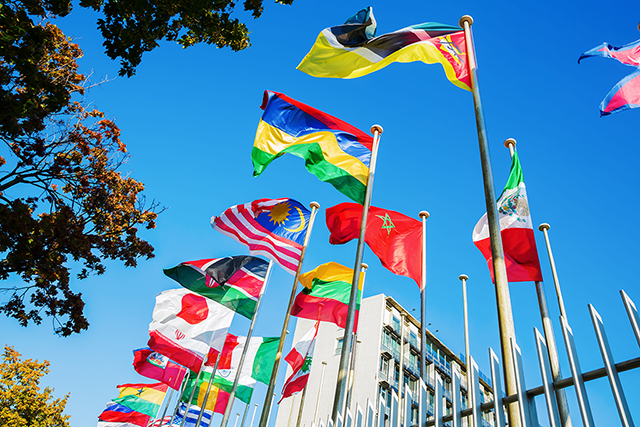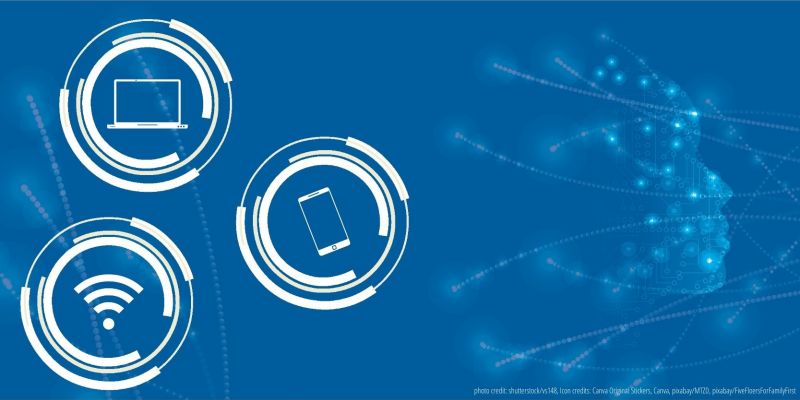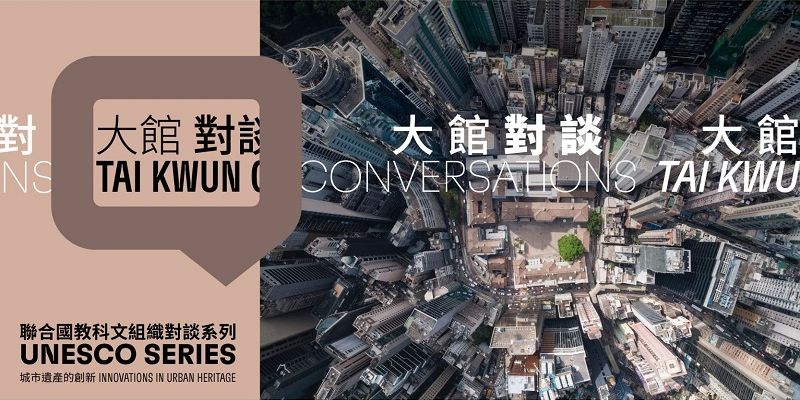UNESCO and UNDP resource-mapping and needs-assessment of vulnerable and marginalized Asia-Pacific youth in digital literacy, safety and participation
New learning technologies, such as virtual classrooms and massive open online courses (MOOCs), present both opportunities and challenges to young people, especially in relation to the most vulnerable. Although digital technology opens up education access and learning products to the public, it can also marginalize those individuals with limited access to basic digital infrastructure and qualified teachers. For instance, over the course of 2010 to 2019, only 66.8 per cent of primary schools and 73.9 per cent of secondary schools in the Asia-Pacific region reported having access to the internet (UIS, 2020).
In response to this situation and to foster greater digital literacy, safety, and participation for vulnerable and marginalized young people, the UNESCO Digital Kids Asia-Pacific Framework (DKAP) has been employed as a guideline for collecting data and addressing the existing ‘digital divide’ in the region. The framework comprises five domains: Digital Literacy; Digital Safety and Resilience; Digital Participation and Agency; Digital Emotional Intelligence; and Digital Creativity and Innovation. The Education 2030 Agenda identifies digital citizenship and information communications technology (ICT) literacy as critical competences for young people, and important factors for achieving the SDG 4 Goal of ‘inclusive and equitable quality education and…lifelong learning opportunities for all’. UNESCO articulates digital citizenship as ‘being able to find, access, use, and create information effectively; engage with other users and with content in an active, critical, sensitive, and ethical manner; and navigate the online and ICT environment safely and responsibly, being aware of one’s own rights’ (UNESCO, 2017).
Commemorating International Day Against Homophobia, Biphobia, Intersexphobia and Transphobia (IDAHOBIT), and operating under the banner of the regional initiative, Being LGBTI in Asia, UNESCO, UNDP and the young changemaker network YouthLead came together on 17 May 2022 to highlight needs and opportunities in relation to digital literacy and safety for young LGBTI persons and Young Key Populations (YKP) in all ongoing responses to AIDS in Asia-Pacific. IDAHOBIT is an annual event that seeks to raise awareness of LGBTI rights, and bring to greater public attention the the social and educational challenges commonly faced by people with diverse sexual orientations, gender identities or expressions, and sexual characteristics. Especially featured was a Facebook Live webinar, ‘Mapping and Review of Resources for, and Needs of Vulnerable and Marginalized Young People in the Asia-Pacific Region on Digital Literacy, Safety and Participation’ (hereafter ‘Mapping and Review’), which was launched on the web-based platform Being LGBTI in Asia page.
The ‘Mapping and Review’ webinar was broadcast by UNESCO and UNDP in partnership with YouthLead and Y-Peer Asia Pacific Center to address the general dearth of readily available and appropriate online resources pertaining to digital citizenship. During the launch of the webinar, key findings and recommendations of the Mapping and Review’ were presented to inform and develop online training materials. A number of inspiring young leaders who have utilised online spaces and platforms for advocacy and to support their communities were also showcased.
Co-authored by the UNESCO Asia and Pacific Regional Bureau for Education, the UNDP Bangkok Regional Hub, and the University of Technology Sydney (UTS), the ‘Mapping and Review’ report aims to better identify the needs of Lesbian, Gay, Bisexual, Trans and Intersex (LGBTI) young people and YKP in the AIDS response in the Asia-Pacific region, in their mutual quest for more secure digital spaces and improvements in individuals’ experiences in digital citizenship. A desk review approach adopted for examining key resources for digital citizenship expressly targeted youth across the Asia-Pacific region. Interview and focus group approaches were also adopted to identify current awareness, practices, perceptions, challenges, and needs of young LGBTI and YKP in regard to their typical engagement with online digital citizenship resources.
Some key findings of the ‘Mapping and Review’ report indicated fewer resources directed toward youth in older age ranges (e.g. 18 to 24 years); the Report tended to target younger children and teenagers. The resources typically accessed tended to emphasize skills-development for navigating risks of digital environments, with less focus on raising awareness of young people’s rights, participation and opportunities for inclusion. Informants who participated in the study pointed to a lack of digital citizenship resources that address the needs and experiences of LGBTI young people and YKP. Different cultural, regional, and national contexts are key challenges in providing region-wide resources (see all findings here). In addition to report findings, sets of recommendations were proposed. Several key recommendations highlighted the use of social media for the delivery of digital safety messages targeting LGBTI young people and YKP and the collaboration with content creators and influencers for generating creative content and to reach wider audiences.
To commemorate the 2022 IDAHOBIT day, the webinar also invited the participation of two youth activists who have worked in the area of Sexual and Reproductive Health and Rights (SRHR). Priyal Agrawal, founder of the StandWeSpeak sexual wellness platform in India, showcased her SexEd-tech initiative that is building a modern sexual health ecosystem. Agrawal’s presentation was followed by that of Fresh Palis, founder of Prism Chat, an online, peer-support platform for LGBT+ youth. These youth-led initiatives have been accessed by more than 25,000 people across Asia and the Pacific region. As Palis commented,
We (youth activists) recognize that the experience of seeking support as an LGBT+ teenager is extremely nuanced and intersectional with other factors such as race, religion, culture, language, gender identity, sexual orientation, and age. We believe it is imperative that technologies employed by these support systems are responsive and tailored to the individual needs [of users].
Although vulnerable and marginalized youth have always existed, UNESCO and its partners have worked closely and strategically to address a widespread inequality gap and corresponding digital divide. In the Asia and Pacific context, the online platform Asia Pacific Inter-Agency Task Team on Young Key Populations (IATT on YKPs) was established in 2009 to promote a coordinated response from UN agencies for meeting the HIV prevention, treatment, care and support needs of YKP. UNESCO’s contribution demonstrates a steadfast commitment to working directly with young people to ensure that they are equipped with twenty-first century knowledge and skills through learning modalities that transform their own lives as well as their larger communities and societies.
By Jenelle Babb, Regional Advisor, and Worapot Yodpet, Junior Project Consultant, Education for Health and Wellbeing Team, Section of Inclusive Quality Education (IQE), UNESCO Asia and Pacific Regional Bureau for Education (UNESCO Bangkok)






